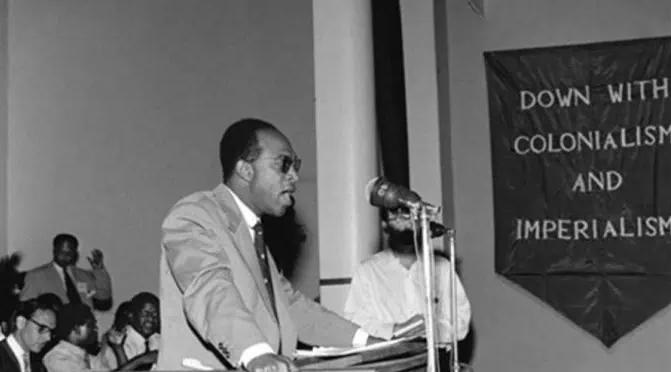
In the spring and summer of 1961, as Algeria bled through its seventh year of war against French colonial rule, a dying Frantz Fanon poured his revolutionary vision into words. Too weak to write, he dictated “The Wretched of the Earth” — a book that would ignite liberation movements across the globe — to Josie Fanon, his life companion and fellow anti-colonial fighter. Around them, the struggle for independence raged; inside their exile in Tunisia, a manifesto for the oppressed was being forged.
The Algerian people waged a guerrilla war against French colonial and allied right-wing forces. The war took a tremendous toll on Algerian fighters, workers, and peasants.
Fanon was battling leukemia, a disease that would claim his life on Dec. 6 of that year. Just months after his death, 1962 witnessed the triumphant conclusion of the Algerian War, as the liberation forces achieved victory and secured the complete withdrawal of French colonial rule. This hard-won independence became a beacon of hope for liberation movements worldwide — a legacy that continues to inspire oppressed resistance across the globe.
Beginning at the outbreak of the war in 1954 and until he was exiled for his nationalist politics, Fanon served diligently as a physician and psychologist at a French Hospital in Algeria. For years, he treated not only Algerian people tortured by French authorities but also French soldiers traumatized from carrying out acts of torture and murder against the Algerian people.
This gave Fanon a critical perspective into the brutality and inhumanity at the center of any colonial regime. The same brutality Fanon observed in French colonial rule in Algeria can be seen today in the Zionist apartheid state and the U.S. military assault on Yemen.
In “The Wretched of the Earth,” Fanon analyzes the crippling long-term impacts of colonial repression on colonized people. Due to Fanon’s political beliefs, he did not stop at psychology. Fanon actively encouraged the oppressed masses of African people to rise up and take back their culture, their society, and their lives by any means necessary – and particularly through armed struggle.
Fanon’s legacy of anti-colonial resistance resonates powerfully today in Africa and the West Asia region. In the Sahel states, Mali, Burkina Faso, and Niger have expelled French-backed regimes, seeking to reclaim their nations’ resources and wealth for their own people rather than enriching billionaires in Paris.
Similar defiant resistance against imperialist domination can be witnessed across West Asia, particularly in Yemen and Palestine, where populations have courageously confronted vastly superior military powers. Despite the immense sacrifices these struggles have demanded, the resolve of these peoples remains unbroken, embodying the same revolutionary spirit that Fanon championed decades ago.
This year will be the 100th anniversary of Fanon’s birth on July 20. The best way to honor Fanon’s commitment to decolonization is to support the continued struggles of colonized and oppressed people across the planet, from Yemen to Palestine to the Sahel.
source: Struggle La Lucha